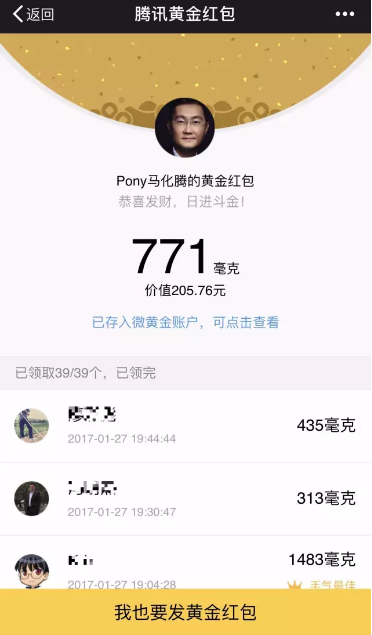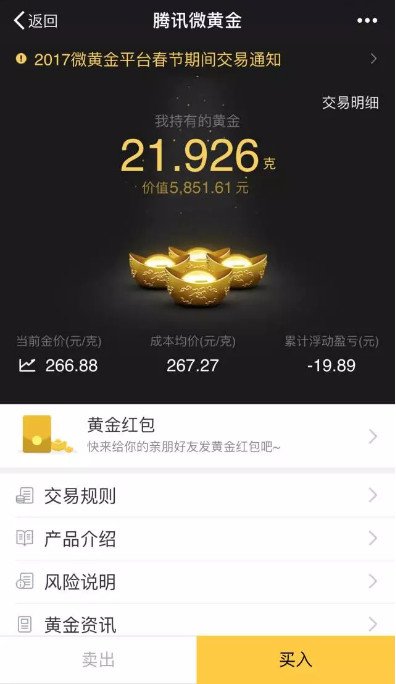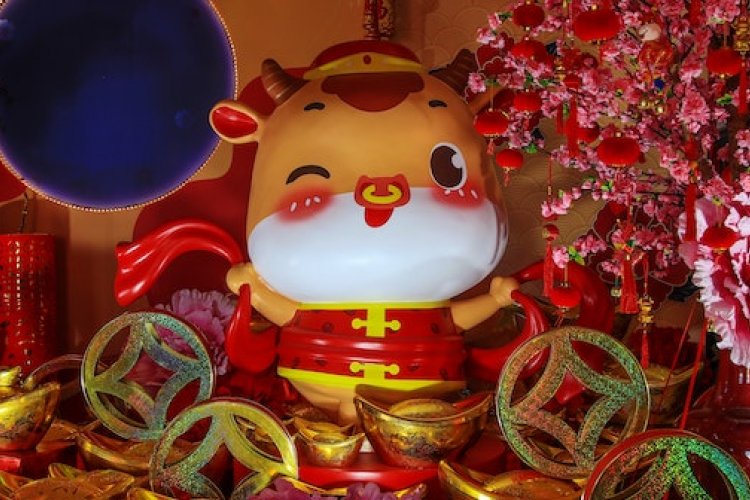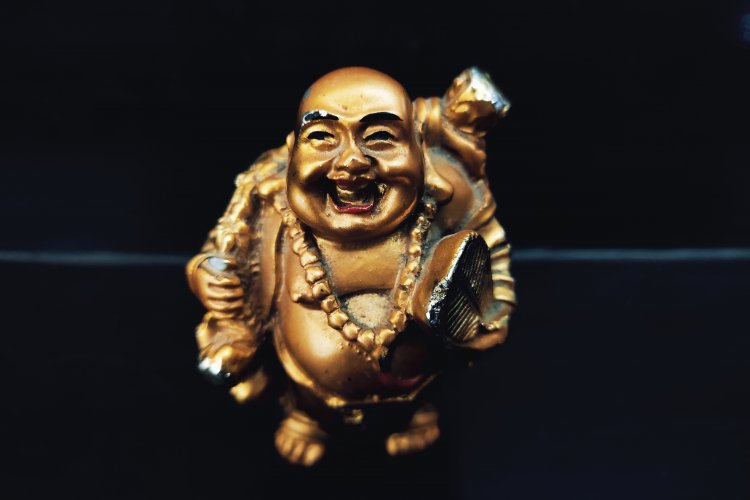WeChat Introduces Gold Hongbao to Promote New Financial Product
This post comes courtesy of our content partners at TechNode.
WeChat began testing a new lucky money feature during the recent Chinese New Year holiday that enables transfers of gold bullion among users with the same mechanics for the existing cash hongbao (红包, lucky money or red envelopes in Chinese).
With the gold hongbao (not official translation), like the cash hongbao, a sender can either send packets to certain persons or let the system randomly divide a certain amount into certain parts and send it to a chat group for group members to try their luck.
Tencent Micro-Gold (not official translation), the online gold investment service jointly launched by Tenpay, the online payment arm of Tencent (WeChat’s parent), and Industrial and Commercial Bank of China (ICBC), one of the largest state-owned banks, in late January 2017, is so far the only supplier of gold for the new hongbao service.

Launched only several days before the gold hongbao feature, Tencent Micro-Gold is built as a WeChat Service Account where WeChat users can purchase gold directly and access to information about investment in gold. The service currently doesn’t charge any fees.
The major difference between gold hongbao and cash hongbao is, of course, gold prices fluctuate over time. However, it is believed the gold hongbao may be preferred by many users as gold has long been seen as a safe haven and part of the monetary gifts giving culture in China.Users must activate their account with the Tencent Micro-Gold service, by subscribing to the WeChat Service Account of the latter, to send or receive gold hongbao will be able to boost user signups. The logic used by the cash hongbao service got millions of users to add their bank cards onto WeChat Payment shortly after the launch of the former in early 2014. As of March 2016, more than 300 million WeChat accounts had added their bank cards.
China has been the world’s biggest gold consumer for four consecutive years. It was recently found that gold was becoming increasingly popular among Chinese investors on the online platforms operated by state-owned banks that allow investments on the Shanghai Gold Exchange.
Gifting gold jewelry or other forms of gold is a tradition in some Chinese regions like Guangdong province, where WeChat and its parent company Tencent are located.
The WeChat hongbao project itself was initiated to create a more convenient way for Tencent management to give away hongbao to employees on the first working day of the Chinese lunar calendar every year, according to the latest book on Tencent by Wu Xiaobo, a well-regarded Chinese business journalist.

WeChat hongbao turns out to be surprisingly popular and now is one of the most used services on the Chinese mobile web. A total of 14.2 billion hongbao were exchanged on January 27th, the eve of 2017 Chinese New Year, according to WeChat.
Before the Tencent Micro-Gold, Tencent’s Internet finance business had had a wide range of services, including Tenpay (online payment), Licaitong (online financial products marketplace), Weilidai (online personal loans), Tencent Credit (credit rating), and a cloud service. And all of the consumer-facing offerings are available and easily accessible on WeChat and QQ, the social services of Tencent. WeBank, the online-only private bank in which Tencent has a 30 percent stake at launch, opened in 2015.
READ: Even When Not Playing,
WeChat Still Wins the 2017 Hongbao Wars
Tencent is now competing directly in the mobile finance field with Ant Financial Services Group, the finance arm of Alibaba Group, who also provides a wide range of financial products and services on mobile through Alipay app, including gold investment. But Ant and Alibaba don’t have social tools like WeChat and QQ to boost the growth of their products, though wanting one badly and having tried and failed a few times.
To compete with WeChat hongbao, Alipay launched an AR hongbao feature before the 2017 Chinese New Year and some hongbao campaigns during the holiday, but attempts by Alipay and Alibaba affiliates haven’t been as lastingly popular as WeChat hongbao.
Images: goldvu.com, Qieshengtai







